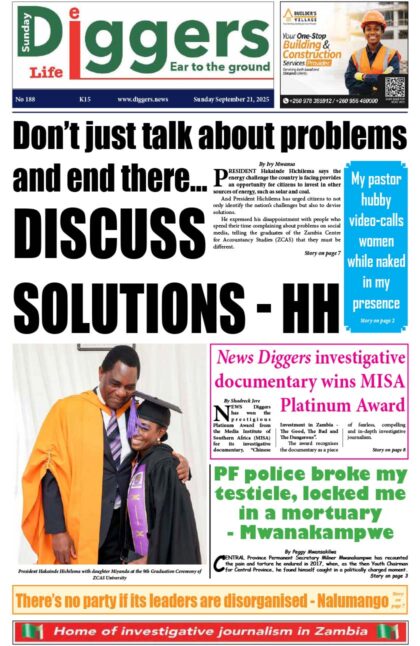ECONOMIST Professor Oliver Saasa says Zesco is a typical example of a badly managed power utility company.
Commenting on remarks by Zesco senior corporate affairs manager John Kunda that the $797,902,517.54 debt owed to local and cross border power suppliers was because the company was buying power at high cost and selling it at a lower cost, Prof Saasa said Zesco did not have full knowledge of its cost structure.
“I think the issue that emerges is that does Zesco have full knowledge of its cost structure? The answer is no! The cost of service study was instituted several years ago, we understood that a draft came out which was rejected. We also understand that a new one has emerged but still Zesco believes that the model that was used, the assumptions that were made that the model was faulty and the revision was sanctioned by a team of consultants. Now without full knowledge of the cost element, you cannot talk about cost reflective tariffs,” Prof Saasa said.
“Even when you are talking about cost recovery by increasing the tariffs in its different categories to the consumers, we are still fundamentally doing guess work. Our capacity is affected if we do not have clear cut knowledge of the cost structure. That study is so fundamental and yet we have played politics with it. One of the things that we are aware from the draft is probably from other studies, is that Zesco is over bloated. The labour component is huge, a number of services that could benefit from outsourcing rather than having them on the payroll are not fully considered by the board. Zesco is one of the typical example of a very badly managed utility company owned by the state.”
Prof Saasa called on the new dawn government to appoint a new Zesco board which understood the operations of the power utility company.
“So, when I heard that statement, someone trying to explain in a very simplistic manner why they are not making those ends meet by just saying ‘we are supplying this and applying much more than the cost’, that is very myopic. We must have a board in the new dawn government that understands these things. Essentially what was explained is really a reflection of failure on the part of the board or whoever to ensure that we take into account all what needs to be taken into account to ensure that Zesco is profitable,” he said.
“The onus lies squarely on the Zesco management and its board. As a consumer, I am not interested in being told why I am failing to get a good service, especially when in the last two years we have seen an exponential increase in the tariffs, more than 200 percent increase. The reason which they gave to satisfy that was that ‘we want to improve the service, we want to be cost reflective’, but still, we see the same complaints coming from Zesco. So for me, that statement is a no. I think and I hope the public will not take kindly to that kind of explanation to explain away something that is so straightforward to manage but that the board and management has failed to make good for many years now.”
Prof Saasa also urged President Hakainde Hichilema to take interest in Zesco.
“The politicization of parastatals including Zesco, we have heard about them. I am not sure if there has been a thorough investigation, not only demanding the truth around that but also determining the magnitude of the truth. I believe that the government and the President, in particular, must take interest in Zesco. Because really at the end of the day power supply is an integral part of the energy sector. Politics should not be an integral part of a utility company that is expected to operate under commercial principles,” said Prof Saasa.
























